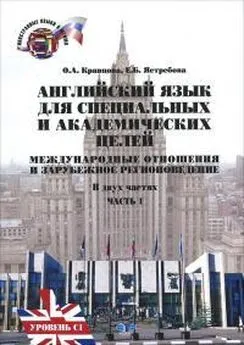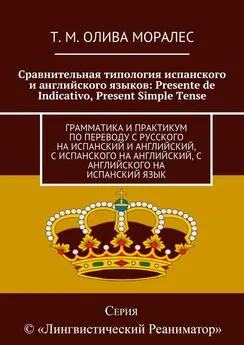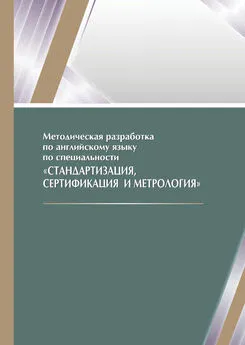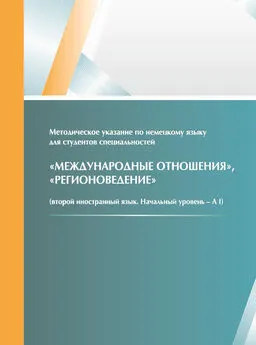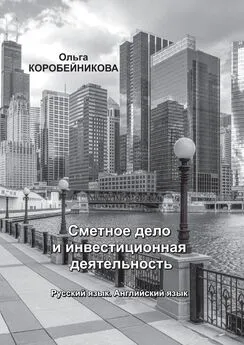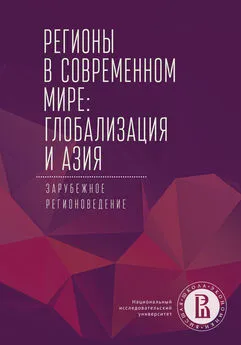Ольга Кравцова - Английский язык для специальных и академических целей: Международные отношения и зарубежное регионоведение. Часть 1
- Название:Английский язык для специальных и академических целей: Международные отношения и зарубежное регионоведение. Часть 1
- Автор:
- Жанр:
- Издательство:МГИМО-Университет
- Год:2015
- ISBN:978-5-9228-1210-8
- Рейтинг:
- Избранное:Добавить в избранное
-
Отзывы:
-
Ваша оценка:
Ольга Кравцова - Английский язык для специальных и академических целей: Международные отношения и зарубежное регионоведение. Часть 1 краткое содержание
Адресовано студентам четвертого курса факультетов и отделений международных отношений и зарубежного регионоведения.
Английский язык для специальных и академических целей: Международные отношения и зарубежное регионоведение. Часть 1 - читать онлайн бесплатно полную версию (весь текст целиком)
Интервал:
Закладка:
By comparison, the United States today is vastly wealthier relative to the rest of the world than Britain ever was. In 1913 Britain's share of the world output was eight per cent; the equivalent figure for the US in 1998 was 22 per cent. Nor should anyone pretend, at least in fiscal terms, that the cost of expanding the American Empire, even if it were to mean a great many small wars like the one in Afghanistan, would be prohibitive. [...] Even after big cuts in military expenditure, the United States is still the world's only superpower, with an unrivalled financial and military-technological capability. Its defence budget is fourteen times that of China and twenty-two times that of Russia. Britain never enjoyed such a lead over her imperial rivals.
The hypothesis, in other words, is a step in the direction of political globalization, with the United States shifting from informal to formal empire much as late Victorian Britain once did. That is certainly what we should expect if history does repeat itself. [...] The British Empire began as a network of coastal bases and informal spheres of influence, much like the post-1945 American ‘empire'. But real and perceived threats to their commercial interests constantly tempted the British to progress from informal to formal imperialism. That was how so much of the atlas came to be coloured imperial red.
No one could deny the extent of the American informal empire — the empire of multinational corporations, of Hollywood movies and even of TV evangelists. Is this so very different from the early British Empire of monopoly trading companies and missionaries? Nor is it any coincidence that a map showing the principal US military bases around the world looks remarkably like a map of Royal Navy coaling stations 21 21 Coaling stations (fuelling stations) are repositories of fuel (coal & later oil) that have been located to service commercial and naval vessels.
a hundred years ago. Even recent American foreign policy recalls
Unit II. US: from Democracy to Empire?
Unit II. US: from Democracy to Empire?
the gunboat diplomacy 1of the British Empire in its Victorian heyday 22 22 Gunboat diplomacy — diplomacy conducted by threats of military intervention, especially by a major power against a militarily weak state (дипломатия канонерок)
23 23 Heyday — the period of greatest popularity, success, or power; prime.
, when a little trouble on the periphery could be dealt with by a short sharp “surgical strike”. The only difference is that today's gunboats fly.
Yet in three respects the process of “Anglobalization” is fundamentally different today. On close inspection, American strengths may not be the strengths of a natural imperial hegemon. For one thing, the British imperial power relied on the massive export of capital and people. But since 1972 the American industry has been a net importer of capital (five per cent of gross domestic product in 2002) and it remains the favoured destination of immigrants from around the world, not a producer of would-be colonial emigrants. Britain in its heyday was able to draw on a culture of unabashed imperialism which dates back to the Elizabethan period, whereas the US — born not in a war against slavery [...], but in a war against the British Empire — will always be a reluctant ruler of other people. Since Woodrow Wilson's intervention to restore the elected government in Mexico in 1913, the American approach has been to fire some shells, march in, hold elections and then get the hell out — until the next crisis. Haiti is one recent example, Kosovo another. Afghanistan may yet prove to be the next, or perhaps Iraq.
[...] The Empire that rules the world today is both more and less than its British begetter (прародитель). It has a much bigger economy, many more people, a much larger arsenal. But it is an empire that lacks the drive to export its capital, its people and its culture to those backward regions which need them most urgently and which, if they are neglected, will breed the greatest threats to its security. It is an empire, in short, that dare not speak its name. It is an empire in denial.
The American Secretary of State Dean Acheson famously said that Britain had lost an empire but failed to find a role. Perhaps the reality is that the Americans have taken our (British) old role without yet facing the fact that an empire comes with it. The technology of overseas rule may have changed — the Dreadnoughts may have given way to F-158. But like it or not, empire is as much a reality today as it was throughout the three hundred years when Britain ruled, and made the modern world.
What are American Values? http://www.youtube.com/watch?v=P9pkYyzkJhM
1. To pull oneself up by one's bootstraps — to improve your position and get out of a difficult situation by your own efforts, without help from other people
2. To hold sway (literary) — to rule or influence people
3. To weight — to change something slightly so that you give more importance to particular ideas or people
1. Do you think Americans have their own unique values different from any other nation? If so, what are they?
2. If your answer to the first question is positive, how can you explain the fact that American values differ from those of other democratic countries?
1. What universal values do the students mention when asked about the values of the American society?
2. Which of the values they name are unique to the United States?
3. There was a note of criticism in one of the comments. What exactly did the student say?
4. One of the students names a value and comments on its downside. What is the value and what is its negative side?
5. Is there a negative side to any of the other values cited by the students?
How do you think the values mentioned in the video affect the American society?
1. How do you understand the term the “American dream”?
2. What basic values underpin the American dream?
3. Is there a downside to these values?
THE VICES OF OUR VIRTUES The American Creed 24 24 Creed — a summary of articles of religious beliefs, any system of beliefs or principles.
is what makes us great as a nation — and also what fosters some big problems
By Robert J. Samuelson
March 11, 1996 — Newsweek http://www.newsweek.com/vices-our-virtues-175908
I am proud to be an American; most of us are. Our patriotism is fierce, if often quiet. A recent Gallup poll asked respondents in 16 countries whether they would like to live elsewhere. Americans finished almost last. Only about 11 percent of us would move. By contrast, 38 percent of Britons, 30 percent of Germans, 20 percent of Japanese and 19 percent of Canadians would. Why, then, are
Unit II. US: from Democracy to Empire?
Unit II. US: from Democracy to Empire?
we so mad at our leaders and society? One neglected answer is this: America's glories and evils are tightly fused together.
The things that we venerate about America — its respect for the individual, its opportunity, its economic vitality, its passion for progress — also breed conditions that we despise: crime, family breakdown, inequality, cynicism, vulgarity and stress, to name a few. Naturally optimistic, Americans reject any connection between our virtues and vices. We refuse to see, as sociologist Seymour Martin Lipset argues in an important new book, that “seemingly contradictory aspects of . . . society are intimately related.” 1
But they are, and in an election year, the relationship is highly relevant. Only by grasping it can we keep our perspective on the campaign's inevitable excesses. Already, we are deluged with anguished analyses of our faults and vast schemes for self-improvement. Both exaggerate our problems and our capacity to cure them; some national conditions aren't easily changed.
The American Creed — our distinct set of values — blends freedom, individualism and egalitarianism. This mix has fired economic advance. Why do we lead the world in computers? The answer is mostly culture. We love to create, experiment and tinker. We are the land of Apple Computer and Netscape. Every year, more than 600,000 new businesses incorporate. We have the largest global pool of venture capital. But the same emphasis on individual striving, success and liberty can also inhibit social control and loosen people's sense of communal obligation.
Crime becomes just another path to “making it.” Divorce rises if marriage seems to imperil selffulfillment. Because we worship individual effort, we are more tolerant of failure and inequality than other nations. In 1987, a poll asked whether “government should provide everyone with a guaranteed basic income.” Only 21 percent of Americans agreed — about a third of the number of Germans (56 percent) or Britons (61 percent). Naturally, our welfare state palls 25 25 “American Exceptionalism: A Double-Edged Sword”, 1997
26 26 To pall — to become less appealing or interesting
next to theirs. Nor should we be surprised that:
Among advanced societies, we are the richest — and the most unequal. In 1995, Americans' incomes averaged roughly 20 to 30 percent above those of Europe and Japan. But the richest 90th percentile 27 27 Percentile — a) in statistics any of 99 points at which a range of data is divided to make 100 groups of equal size; b) any of these groups.
of Americans have incomes nearly six times higher than the poor at the 10th percentile. In Germany, the same ratio is 3 to 1; in Canada and Italy, it's about 4 to 1.
We have the most successful democracy — and among the lowest voter turnouts. In the Gallup poll, more Americans (64 percent) were satisfied with democracy than people anywhere else. Canadians (62 percent) were closest; Britons (40 percent) and Japanese (35 percent) were well behind. Yet, in nonpresidential elections, less than half of eligible Americans vote.
Although decidedly moralistic, we have one of the world's most violent societies. In 1990, the American murder rate was more than twice as high as Germany's and nine times higher than Japan's.
Contradictions abound. “Concern for the legal rights of accused persons and civil liberties in general is tied to opposition to gun control and difficulty in applying crime-control measures,” writes Lipset. Naturally, Americans are among the world's most gun-owning peoples. In 1993, 29 percent of U.S. households had handguns, compared with 5 percent of Canadian and 2 percent of Australian.
To some extent, the proof that our virtues and vices are connected comes from abroad, where the advance of American values has created a natural experiment in social change. The loosening of tight social controls in Russia, China and South Africa has led to more freedom — and crime. In Europe and Japan, prosperity and the celebration of individuality have coincided with more divorce and crime. Between 1970 and 1991, divorce rates rose 40 percent in Germany and 50 percent in Japan (though both remain well below U.S. levels).
The American Creed was already well established by the 1830s, when Alexis de Tocqueville first described it. Even in Colonial times, America was less rigid socially than Europe. Land was a great leveler. In America, most farmers owned it; in England, 60 percent of the population didn't. Still, Colonial America brimmed with hereditary privileges and arbitrary power. In a 1992 book, historian Gordon S. Wood of Brown University argued that the decisive break occurred during the Revolution itself, which created a social and intellectual upheaval.
Читать дальшеИнтервал:
Закладка:
